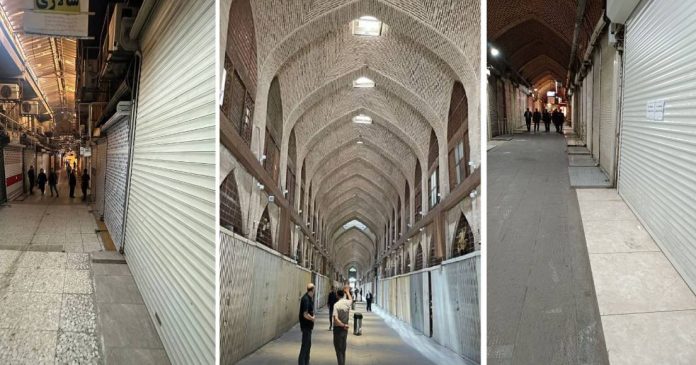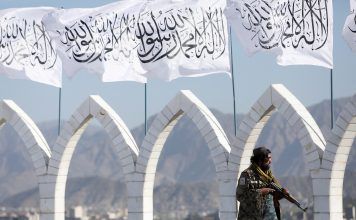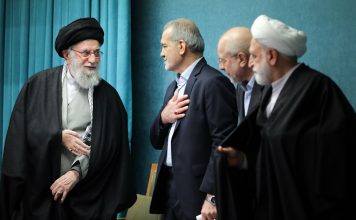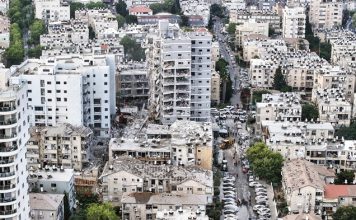By Kayhan Life Staff
Gold dealers in cities across Iran have united to protest the new tax laws introduced by the Majlis (Iranian Parliament) and the financial regulations imposed by the government. The cities include Tehran, Isfahan, Tabriz, Urmia, Mashhad, Qom, Borujerd, and Kermanshah.
In response to the growing nationwide protests by gold dealers, goldsmiths, and jewelers, the government announced on May 8 that “gold dealers would no longer be required to register their non-current capital in the comprehensive trade system.” Instead, they would be “mandated to register their transaction information.” The decision was made with the “intention of maintaining transparency in the gold market.”
The strikes gained significant traction on May 12 when a substantial number of gold dealers and prominent figures, such as the president and board of directors of the Tehran Gold and Jewelry Union, met with a government representative at Shah Mosque in Tehran Grand Bazaar to air their grievances.
A day later, the semi-official Iran newspaper characterized the meeting at Shah Mosque as a “session aimed at clarifying ambiguities” and viewed it as a “positive sign towards permanently resolving these uncertainties.”
The gold dealers’ strike has a historical precedent: There have been longstanding differences between the dealers and the government. Tensions have escalated to such a degree that several gold shops in Mashhad were sealed because of the strike.
Analysts predict that the dispute between gold dealers and the government is unlikely to be resolved swiftly. Some gold dealers have even issued threats, stating that if the government does not yield, they may be compelled to shut down their businesses and move their capital out of Iran.
Alireza Shahmirzaei, deputy minister of Industry, Mine and Trade, has allegedly sought the help of the Iran Chamber of Guilds to pressure the gold dealers to call off the strike.
However, according to Nader Bazrafshan, the president of Tehran Gold and Jewelry Union, the problem stems from the recent government reform that focuses on distinguishing personal capital from business capital within the “comprehensive trade system.”
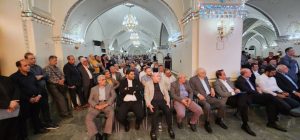
Mr. Bazrafshan emphasized that personal capital, not involved in commercial transactions, is not required to be registered in the trading system. He also noted that personal capital plays a lesser role in the gold trade compared to tangible investments visible in jewelers’ shops and display windows.
“The widespread strike by gold sellers forced the government to back down,” Kayhan London posted on X (formerly known as Twitter) on May 9.
“Gold sellers strike in several cities including Tehran, Isfahan, Tabriz, Urmia, Mashhad, Qom, Borujerd, which started in early May in response to a Majlis resolution and financial regulations, forced the government to back down,” the post added.
Despite the government’s apparent “retreat,” gold dealers remained unsatisfied, believing the government intended to “extort” money from them. As a result, they persisted with their strike.
Disagreements between the government and gold dealers extend beyond just registering assets in the system. The conflict also revolves around the Parliament’s resolution to impose a “tax on the profits generated from gold transactions.”
In response, gold dealers have refused to buy and sell gold over the past one or two weeks. The dealers argue that the increase in rial value within their assets is caused by inflation rather than actual profit and should not be subject to taxation.
Despite the Iran newspaper’s claim, the negotiations between gold dealers and the government showed no “positive sign.”
In comments reported on May 13 by the market analysis news website Bazaar, Ali Khezrian, a member of the Article 90 Commission of the Majlis, said: “Some individuals exploit gold transactions as a cover to conduct illicit activities such as money laundering, tax evasion, unregulated currency dealings, instigating currency crises, and facilitating capital outflows.”
“According to reports from investigating institutions, the smuggling of gold bullion and artifacts has reached several billion dollars. This illicit activity has inflicted significant harm on local artisans and producers, leading to a substantial loss of employment opportunities in the country,” Mr. Khezrian noted.
Khezrian said there “would be no exceptions in enforcing the trade system law” and issued a stern warning that he “would use his authority to ensure compliance with the law and prevent any attempts to circumvent it.”
The Islamic Students News Agency (ISNA) reported on May 13 that, per the new regulations, “gold sellers are not required to register their gold inventory.”
According to Nader Bazrafshan, some businesses resort to borrowing gold as a loan from friends and acquaintances to stock their shops. Also, some traders rent space in their establishments to ensure their shops are adequately filled and engage in economic activities.
“It is estimated that between 60 to 70 percent of the capital of gold trading units is composed of consignments and loans. These traders argue that their inventory should not be part of their capital. Hence, they refrain from registering it in the system. Trade unions advocate against the general registration of capital, suggesting that only transactions should be recorded,” Bazrafshan noted.
According to reports, the government has employed various tactics to pressure the gold and jewelry union to end their strike. This pressure has been exerted through security institutions and government agencies to compel gold sellers to cease their strike activities. These efforts have focused on Tehran and other major cities like Isfahan, Tabriz, and Mashhad, where the gold market sees significant transaction volumes and where the strike of gold sellers holds great sway.

